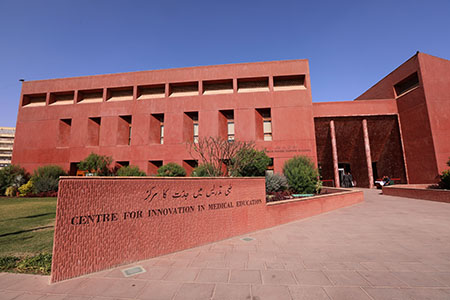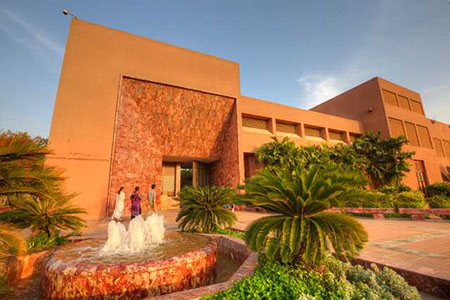 The University of Alabama at Birmingham and Aga Khan University have entered into an agreement to develop collaborative academic, cultural exchange and research programs that will enable faculty and students to explore new ideas in the classroom, laboratory, studio and clinic. The initiative will leverage their shared strengths in research and scholarship to generate knowledge that can help address real world issues.
The University of Alabama at Birmingham and Aga Khan University have entered into an agreement to develop collaborative academic, cultural exchange and research programs that will enable faculty and students to explore new ideas in the classroom, laboratory, studio and clinic. The initiative will leverage their shared strengths in research and scholarship to generate knowledge that can help address real world issues.
The agreement between the two institutions was signed by Suzanne Austin, senior vice provost and senior international officer from UAB and Carl Amrhein, provost and vice president, Academic, at AKU.
“UAB places great value in strengthening its global outreach efforts in both academics and research and has taken steps to increase the scope and scale of our ability to contribute cutting-edge, problem-solving ideas on the global stage,” Austin said. “We look forward to working with Aga Khan University to enable both institutions to expand the scope and impact our knowledge, discoveries and innovations may have for the benefit of our respective constituencies and the global community at large.”
“AKU is committed to fostering global partnerships that can help drive innovation and social change,” Amrhein said. “This agreement reflects our continued commitment to work with the world’s best institutions to address the world’s most pressing problems.”
The two universities are currently considering joint research and training initiatives in the areas of HIV, breast cancer, and translational science and health disparities.
“Both Aga Khan University and the University of Alabama at Birmingham serve unique vulnerable segments of the population that face societal inequities,” said AKU’s Professor Mansoor Saleh. “Our partnership will allow us to learn from each other on how to better serve this constituency. The transfer of knowledge and know-how across the two institutions will be strengthened by this agreement. We look forward to joint grant applications and the exchange of trainees and faculty across our campuses.”
Prior to joining AKU, Saleh was a senior scientist at the O'Neal Comprehensive Cancer Center, director of UAB’s Early Drug Development Phase 1 Program, and a visiting professor at AKU. He recently joined AKU as the founding chair of the department of Hematology-Oncology and the founding director of the newly established AKU Cancer Center.
“We are excited about this new relationship with Aga Khan University,” said Michael Saag, M.D., associate dean for Global Health at the UAB School of Medicine. “Through the efforts of Dr. Saleh, we will be able to establish a platform that allows bidirectional research, education and training activities between the two institutions. This can serve as a resource for UAB and Aga Khan, but also as a bridge to other institutions throughout sub-Saharan Africa who might wish to collaborate on research projects.”
While on opposite sides of the globe, UAB and the AKU are similar in many ways, including having sizeable underserved populations in their catchment areas. The two institutions will, through this partnership, exchange scientific expertise and work together to address many of the health issues in their respective locales.
Discussions to identify initial projects have begun between representatives of UAB and AKU.